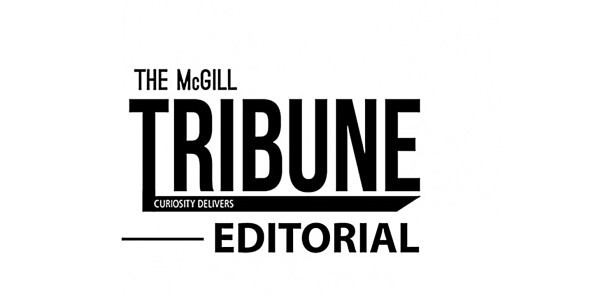Last Tuesday, McGill hosted the “Asbestos: Dialogue for the Future” conference, a full-day symposium on McGill’s role in asbestos research, asbestos as a substance, and the broader role of corporate funding in the university environment. The conference was the result of one of the recommendations made in a 2012 internal review of a series of hotly contested McGill studies of asbestos from the 1960s to the 1990s.
These studies, conducted by now-retired McGill professor John Corbett McDonald, were funded by the lobbying arm of the Quebec asbestos industry. The research concluded that under certain levels of exposure, asbestos was not only “innocuous” to mine workers, but even had a “protective” effect. McGill’s role in this research triggered strong reaction both in the scientific community and on campus after a CBC documentary in early 2012 brought the shortcomings of the research into sharp relief. Chief among the issues was the close relationship between McGill and the asbestos industry during the course of these studies, as well as the continued use of these studies to support Canadian exports of asbestos to poorer nations.
There is nothing that can be done to fully repair the harm—both to the asbestos mine workers in Quebec and to those exposed to asbestos in countries Canada has exported to—that the original research may have helped precipitate. However, the conference does represent an effort, however halting, towards creating the sort of institutional protections that would prevent a similar situation from arising in the future.
During his presentation, David Egilman, a professor at Brown University’s Alpert Medical School–and a valiant critic of McDonald’s studies–argued that in the specific case of the asbestos studies, the unions and workers of the Quebec mines examined should have been given money to hire independent experts to look at the research methodology and data. Such independent oversight should aim to prevent instances of university-corporate collusion like the one that makes McDonald’s research so problematic today.
At the final panel, additional recommendations were proposed. Professor Daniel Weinstock pointed out that universities often see themselves to be in a weaker negotiating position vis-à-vis corporations than they are be. The American Association of University Professors prepared a package of suggested “best practices” for universities in dealing with corporations, including prohibiting faculty members from lending their names to ghostwritten corporate papers, and discouraging faculty members from participating in corporate-funded studies where not all research results would be available to third-party investigators.
McGill’s current regulations on conflict of interest, which were ratified in 2009, do apply to all members of the university community, and the university does already have multiple Research Ethics Boards which examine project proposals. The current regulations on research conduct, approved in 2010, do prohibit researchers from entering into agreements which allow interested parties to suppress results (rule 3.8 of the “Regulation on the Conduct of Research). Still, they do not require researchers to bring in ongoing third party oversight for corporate-sponsored projects. The university should give serious consideration to establishing such a framework. If the university truly wants to look to the future, more safeguards should be in place.
This debate still leaves the question of what should be done with McDonald’s studies, especially his 1998 paper. Critics, including anti-asbestos advocate Kathleen Ruff, have argued that the ethical review of the papers already undertaken by McGill’s research ethics officer was severely flawed by not being carried out through a third-party. Establishing a truly independent review of these studies would be the least that can come out of this conference.
The asbestos conference this past Tuesday was worthwhile insofar as it continued the conversation this university needs to have–not only about the past, but about the future of corporate-funded research. To amount to anything more than talk, however, the discussion should lead to action; the issue can’t end here.







